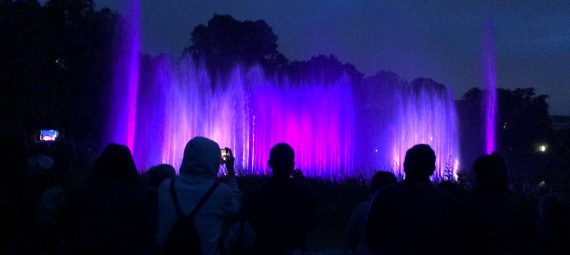After finishing my Masters and feeling like I needed both a break but something exciting and relevant to do, I found the perfect opportunity in the beautiful city of Hamburg for the Universität Hamburg’s “Biological Transitions” summer school.
The first thing I noticed about the city is the liveliness. Graffiti and stickers litter the bustling areas in and around the Reeperbahn and Sternschanze, but these are far from bad things. The urban wall art gives life to these areas and gives you an idea of what the other inhabitants were thinking; politically or artistically. The rest of the city was equally beautiful but in different ways. The university provided us with travel passes, allowing us the freedom to travel to anywhere in the city for free. The canals and lakes made for picturesque canoeing spots and man-made beaches, as well as travelling by ferry, which was included in the normal travel pass!
Several trips and bonding experiences were also included in the summer school which really made us feel welcome. We discovered the very different histories of Lübeck and Berlin, as well as more local phenomena such as the Miniatur Wonderland (the largest miniature railway set!) and beer tasting at a Hamburg brewery. The outings weren’t all equally fascinating but there was something for everyone and it let me try things I wouldn’t have otherwise approached.
The summer school gave us an opportunity to meet people from all around the world, at different levels of study and focusing on different things. We had all come together to learn and practice biology in relation to a very important topic; climate change. Before this started, lessons on the German language (a very beautiful language) as well as lessons and excursions about the history of Hamburg gave us a good feel about life in the city.
Lessons were split into three larger topics: “Biota in the Climate System”, “Host-Parasite Interactions in a Changing World” and “Evolution and Hybridisation”. During the first week, we learnt a lot about the coastal effects of climate change on biological and agricultural life. This was particularly relevant in Germany due to the sinking lands by the salt marshes. We visited a salt marsh by the North Sea to see the real experiments taking place, as well as a visit to Lake Stechlin where the IGB research institute was looking at the effects of warming on aquatic life. The second week consisted of how parasites affect humans, animals and plants and how this could spread with the warming weather. Through lab practices, we could put our theory into practice, visualising biofilms and infecting plants. The final week consisted mainly of lab work, giving me experience in areas I had never previously approached. The highlight of which may be my success in performing tiny plant surgery! However there was also a lecture on the sexually cannibalistic wasp spider, which was also incredibly interesting.
Unfortunately the lecturers weren’t always sure of our different backgrounds and levels of study so the content varied between very niche and very broad. Despite this, I learnt a lot during the four weeks I was there.
I hadn’t visited Germany before this experience and I would confidently say I’d return. Hamburg has lots of great quirks and was great fun to live in. The people at the university and the others on the summer school were all super lovely and I hope to see them all again soon!

